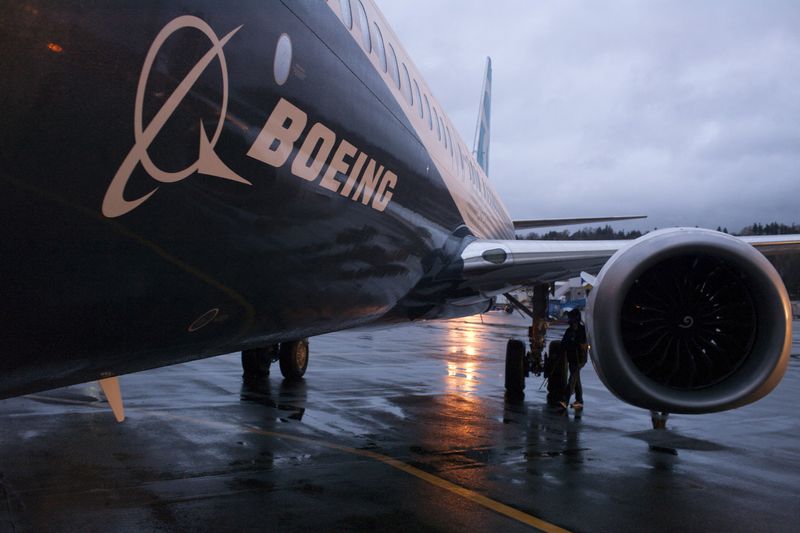Boeing’s new CEO Kelly Ortberg faces a major overhaul, from factories to finances

(Corrects to fix formatting issue in headline)
(Reuters) – Boeing’s incoming boss, Kelly Ortberg, faces a herculean task when he starts next week – restoring the might of a U.S. corporate powerhouse rocked by multiple crises.
The former Rockwell Collins boss is returning from retirement to head the 108-year-old U.S. planemaker, which is bleeding cash and beset by companywide problems expected to take years to fix. His extensive to-do list includes mending relationships with airlines and employees, boosting output, repairing company finances and securing a labor deal to avoid a possible worker strike later this year.
Current and former airline executives told Reuters they are optimistic about Ortberg’s aerospace and engineering expertise and his status as an outsider untethered to Boeing’s past. But the 64-year-old has a hefty task.
“This is not a five-year fix-it,” said Bill George, former Medtronic CEO and executive fellow at Harvard Business School. “Is he prepared to spend the 10 years it’s going to take to restore Boeing?”
Boeing did not make Ortberg available for an interview. The company has previously said it is taking comprehensive steps to strengthen quality and build confidence, including reducing the amount of so-called traveled or pending work.
“There is much work to be done, and I’m looking forward to getting started,” Ortberg said on Wednesday in a statement.
The company’s most pressing issue is its falloff in jet production and deliveries following a Jan. 5 mid-air panel blowout on a near-new 737 MAX. Boeing is currently producing about 25 MAX jets a month, with a target of 38 per month by year-end.
This has left customers scrambling for planes as travel demand has boomed, costing them revenue and leaving them overstaffed. Southwest Airlines, which operates an all-Boeing fleet, had been hiring on the assumption it would receive 85 jets this year, but it now expects only 20 planes.
Former United Airlines CEO Oscar Munoz said Ortberg will need to be realistic with executives. Reaching out to key customers and Boeing employees “and letting them know that they have a leader that they can trust and work with” will be key, Munoz told Reuters.
Boeing is still facing industry supply-chain snags and the threat of labor disruptions this September from the more-than 30,000 Seattle-area factory workers currently in contract talks.
Spokespeople for both Boeing and the International Association of Machinists and Aerospace Workers say the two sides have made progress on non-economic issues, with talks on critical economic issues to start in coming weeks.
BURNING CASH
The company also needs to boost output to slow a cash burn expected to continue at least through the third quarter. Rating agency S&P said it could downgrade the company’s credit rating to junk status if Boeing does not make progress toward more normalized production levels. That would raise its borrowing costs. Boeing has been paying for parts and components that are currently not being used to build planes.
“There’s a lot of operating leverage in this business, and with production rates currently below optimal capacity, it’s just going to burn cash,” said Tony Bancroft, portfolio manager at Gabelli Funds, which holds Boeing shares.
The road to fixing Boeing’s finances goes through its factories. Ortberg’s plan to be based in Seattle where Boeing does most of its commercial jet manufacturing, even though the company is headquartered in Washington, D.C., has won early praise from the machinists’ union and others.
Ortberg will also need to meet with families of the 346 people who perished in two 737 MAX crashes in 2018 and 2019.
The U.S. Department of Justice and Boeing agreed that the planemaker would plead guilty to a criminal fraud conspiracy charge and pay up to $487 million after breaching a 2021 deferred prosecution agreement. A U.S. judge must decide whether to accept the deal, which would require board members to meet with family members.
Once it gets the company on solid footing, Boeing leadership will need to focus on launching a new commercial jet to add to its aging product line, analysts said. The MAX is the latest variant of the 737 jet which first entered service in 1968.
“Given Mr. Ortberg’s age – he is 64 – his priorities may be to stabilize Boeing’s operations, finances, and fix the culture,” said Robert Spingarn, analyst at Melius Research, who added that while he is an advocate for a new plane, “we must admit that Boeing has more immediate needs.”
(Reporting by Allison Lampert in Montreal. Additional reporting by Rajesh Kumar Singh in Chicago; Editing by Matthew Lewis)









